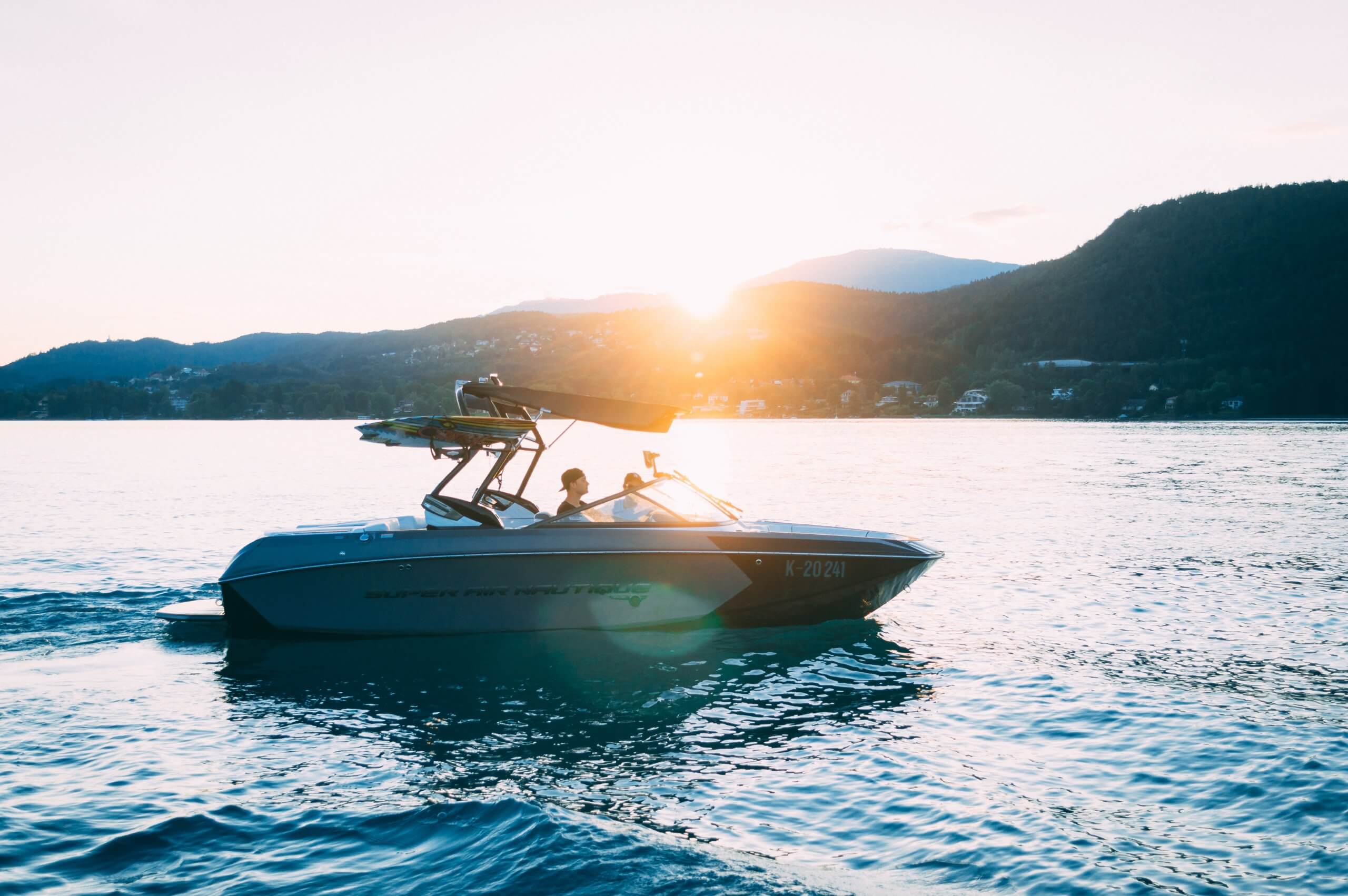Boating Regulations & Liability Laws in Maryland: A Comprehensive Guide

Maryland’s diverse waterways, from the serene Chesapeake Bay to the mighty Atlantic Ocean, offer a wealth of opportunities for boating enthusiasts. However, to ensure a safe and enjoyable experience for all, it is crucial to understand and adhere to Maryland boating regulations, recreational boating laws, and boating liability laws. This comprehensive guide will delve into the essential aspects of boating safety in Maryland, including:
- Boating license requirements
- Equipment standards
- Navigation rules
- Legal consequences of boating accidents
Maryland Boating License Requirements and Safety Education
In Maryland, anyone born on or after July 1, 1972, must obtain a Maryland boating safety certificate before operating a vessel on state waters. This requirement highlights the importance of boating safety education and ensures that boaters are well-prepared to handle the challenges and responsibilities of navigating Maryland’s waterways.
Minors under the age of 16 who wish to operate a motorized vessel longer than 11 feet must either:
- Possess a valid boating safety certificate, or
- Be supervised by a certified adult or an individual born before July 1, 1972
This regulation promotes safe boating practices from an early age and ensures that young boaters receive proper guidance and supervision.
The Maryland Department of Natural Resources offers various options for obtaining a boating safety certificate, including:
- In-person courses conducted by the Maryland Natural Resources Police, U.S. Coast Guard Auxiliary, or U.S. Power Squadrons
- Online courses approved by the National Association of State Boating Law Administrators (NASBLA)
- Equivalency exam for experienced boaters who meet specific criteria
Boaters are encouraged to periodically refresh their knowledge of safe boating practices and stay informed about updates to Maryland boating regulations.
Required Boating Equipment and Operational Standards
To ensure the safety of all passengers, each vessel must be equipped with U.S. Coast Guard-approved life jackets for every person on board. These life jackets must be:
- In good condition
- Easily accessible
- Appropriately sized for the wearer
Adherence to this regulation is paramount in preventing accidents and minimizing the risk of injury or loss of life.
In addition to life jackets, boats must carry other essential safety equipment, such as:
- Fire extinguishers
- Visual distress signals (flares)
- Sound-producing devices (horns or whistles)
- Navigation lights
- Anchor and line
- Throwable flotation devices (for vessels 16 feet or longer)
Regular maintenance and safety equipment inspection are crucial to ensure proper functionality when needed.
The Maryland Department of Natural Resources is responsible for enforcing these and other boating regulations, such as:
- The requirement to assist individuals in danger
- Compliance with directives from the Maryland Natural Resources Police
When approached by a Maryland Natural Resources Police patrol vessel displaying a flashing blue light, boaters must:
- Yield the right-of-way
- Stop their vessel
- Maintain their position until the patrol vessel has passed, unless otherwise instructed by the officer
Boating Under the Influence (BUI) and Navigation Rules
Operating a vessel while under the influence of alcohol or drugs is not only dangerous but also illegal in Maryland. The legal alcohol limit for boating in Maryland is a blood alcohol concentration (BAC) of 0.08% or higher. Boaters who are found to be impaired by alcohol or drugs can be charged with boating under the influence (BUI), which carries severe legal consequences.
The penalties for BUI in Maryland may include:
- Fines ranging from $500 to $1,000 for a first offense
- Jail time of up to one year
- Suspension or revocation of boating privileges
- Mandatory alcohol education or treatment programs
In addition to the legal ramifications, operating a boat under the influence puts the safety of the operator, passengers, and other boaters at risk.
To promote safe navigation and prevent accidents, Maryland has established several key navigation rules:
- Speed Limitations Near Others: Boats must maintain a cautious speed of 6 knots or slower when within 100 feet of another boat, pier, pilings, bridge structure, abutment, or individuals in the water.
- Shallow Water Navigation: Operating boats in waters less than 18 inches deep is prohibited unless necessary for crossing or overtaking.
- Distance from Swimmers and Fishers: Boaters must maintain a minimum distance of 300 feet from individuals who are swimming or fishing to ensure their safety and minimize disturbances.
- Compliance with Natural Resources Police: If a Maryland Natural Resources Police officer determines that a boat is operating unsafely, they have the authority to instruct the operator to take corrective actions, which may include returning to port if the boat is found to have:
- Insufficient life jackets
- Insufficient fire extinguishers
- Other safety equipment deficiencies
- Overloading
- Improper navigation lights
- Fuel leakage or other hazardous conditions
Boaters should also be aware of specific regulations that apply to different bodies of water, such as speed limits, no-wake zones, and restricted areas. Familiarizing oneself with local rules and navigational aids, such as buoys and markers, is essential for safe and responsible boating.
Boating Accident Reporting and Legal Consequences
In the event of a boating accident, the operator must:
- Stop
- Provide assistance
- Share their identification information, including the name, address, and identification of their vessel
Accident reports must be submitted to the Maryland Department of Natural Resources within specific timeframes, depending on the severity of the incident:
- Within 48 hours if the accident results in the death or disappearance of a person, or if a person requires medical treatment beyond first aid.
- Within 10 days for all other boating accidents if the damage exceeds $2,000 or a boat is lost. Running aground or colliding with a fixed or floating object is considered a boating accident and must be reported to the Natural Resources Police.
Understanding and adhering to these reporting procedures is essential for addressing the legal consequences of boating accidents in Maryland.
Failure to report a boating accident as required by law can result in:
- Fines
- Imprisonment
- Suspension or revocation of boating privileges
Boaters involved in accidents should also be prepared to provide documentation, such as:
- Boating safety certificate
- Vessel registration
- Insurance information
- Photographs of damage or injuries
- Witness statements
Keeping accurate records and evidence can be crucial in the event of legal proceedings or insurance claims.
Liability and Legal Assistance
In Maryland, liability for boating accidents is determined by the “pure contributory negligence” rule, which can be complex and challenging to navigate without legal expertise. Under this rule, if an injured party is found to have contributed to the accident in any way, they may be barred from recovering damages, even if the other party was primarily at fault.
If you are involved in a boating accident, it is crucial to seek the guidance of an experienced boating accident attorney in Maryland who can protect your rights and help you understand your options for seeking compensation
A knowledgeable attorney can assist in:
- Investigating the accident and gathering evidence
- Identifying liable parties
- Negotiating with insurance companies
- Representing your interests in court, if necessary
The Law Offices of Nicholas Parr in Baltimore, MD, specializes in boating injury compensation cases and has a deep understanding of Maryland’s boating and liability laws. With a commitment to protecting your rights on the water and ensuring that you receive the representation you need, the firm offers:
- Free consultations
- Contingency fee basis, meaning you only pay if they win your case
Boater Safety Tips and Best Practices
To minimize the risk of accidents and ensure a safe and enjoyable boating experience, consider the following safety tips and best practices:
- Always wear a properly fitting, U.S. Coast Guard-approved life jacket while on the water.
- Complete a boating safety course and obtain your Maryland boating safety certificate.
- Familiarize yourself with and adhere to all Maryland boating regulations and navigation rules.
- Never operate a boat under the influence of alcohol or drugs.
- Maintain a safe speed and keep a proper lookout for other boats, swimmers, and obstacles.
- Ensure your boat is equipped with all required safety gear and that it is in good working condition.
- Check weather conditions before heading out and be prepared for changes.
- Develop a float plan and share it with a responsible person on shore.
- Stay hydrated, protect yourself from the sun, and be mindful of the signs of heat exhaustion.
- In the event of an accident, stay calm, provide assistance, and report the incident as required by law.
Additional safety measures include:
- Ensuring all passengers are properly seated and wearing life jackets
- Avoiding distractions, such as cell phones or other electronic devices
- Maintaining a safe distance from other boats and watercraft
- Being aware of carbon monoxide risks and ensuring proper ventilation
- Learning proper docking and anchoring techniques
- Carrying a fully-charged cell phone or marine radio for emergency communication
- Taking a boating safety course to improve skills and knowledge
By prioritizing safety and following best practices, boaters can minimize the risk of accidents and enjoy Maryland’s waters with greater peace of mind.
Understanding and complying with Maryland’s boating regulations, safety guidelines, and liability laws is essential for all boaters, whether you are a seasoned mariner or a recreational enthusiast. By staying informed, following best practices, and seeking legal assistance when necessary, you can help ensure a safe and enjoyable experience on Maryland’s beautiful waterways.
Boating safety is a shared responsibility, and it is up to every boater to do their part in promoting a culture of responsible and informed boating. By setting a positive example and encouraging others to prioritize safety, we can work together to reduce accidents, protect our fellow boaters, and preserve the health and beauty of Maryland’s aquatic resources for generations to come.
Remember, the key to a successful and enjoyable boating experience lies in preparation, education, and adherence to the rules and regulations designed to keep us all safe on the water. So, before you set out on your next aquatic adventure, take the time to review Maryland’s boating laws, invest in proper safety equipment, and commit to being a responsible and conscientious boater.


